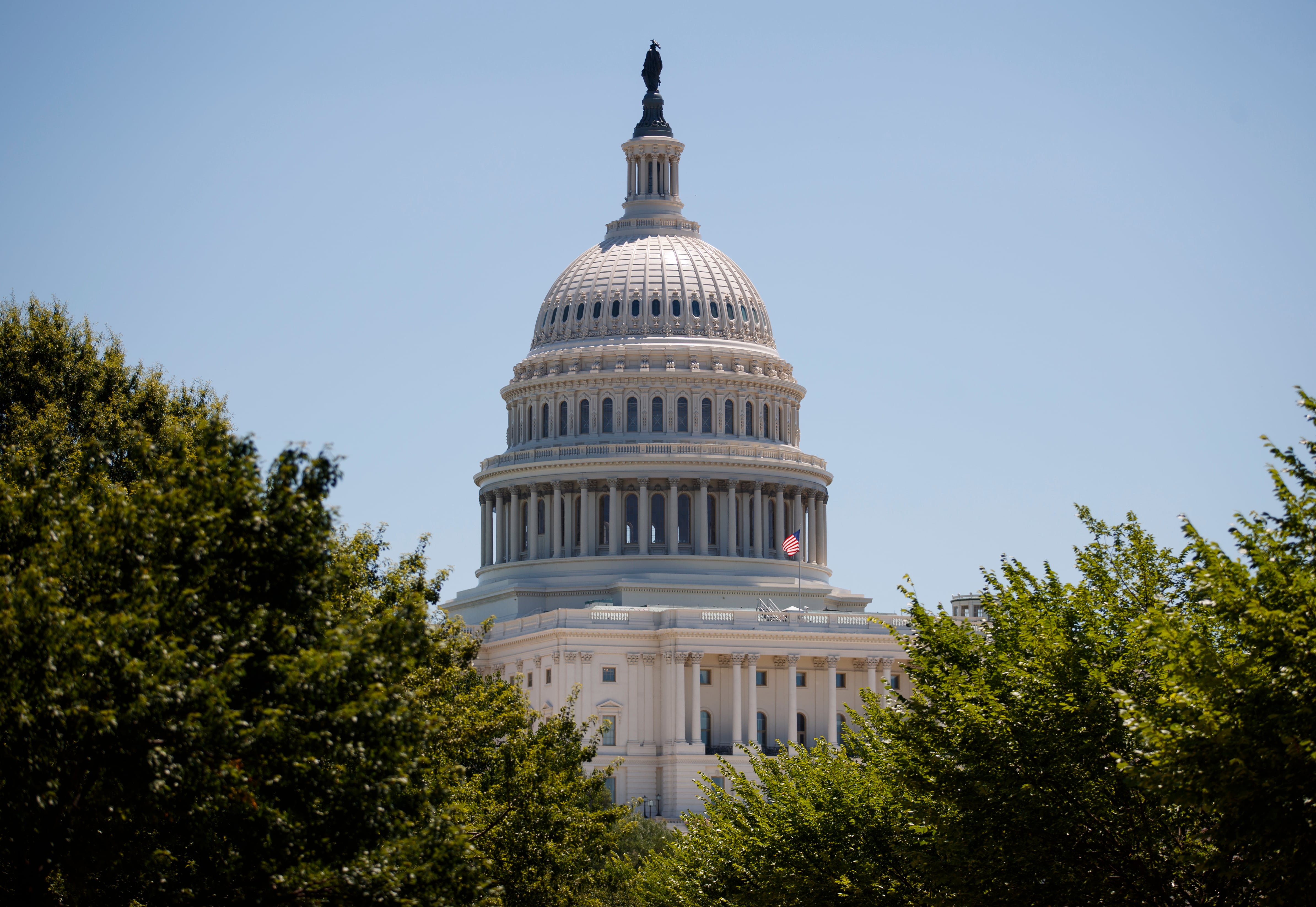WASHINGTON ― The Democratic-controlled House passed a $985 billion appropriations package for fiscal 2020 that aims to fund national security at $17 billion less than the White House requested, end the post-2001 war authorizations after eight months, pull military support in Yemen and defund the W76-2 nuclear warhead.
The vote was 225-203, with seven Democrats voting with the Republican minority. Zero Republicans voted for the bill.
It’s a salvo from Democrats in FY20 budget negotiations with the GOP-controlled Senate and White House, and the White House has threatened that President Donald Trump would veto the massive bill. Beyond the above provisions and others, the administration strongly objected to language meant to block Pentagon funds being applied to a wall on the southern border.
The threat foreshadows pushback from the Senate and the White House, in part because both advocated for a $750 billion national defense budget, while the House-passed bill is consistent with a $733 billion national defense budget. (The House bill would fund the Pentagon alone at $8 billion less than the White House request.)
The four-bill “minibus” contained the two largest of the 12 annual appropriations bills; the Labor, Health and Human Services, Education, and Related Agencies bill and the Defense bill. For the defense, it totaled $645.1 billion in base-defense funding, and $68.1 billion in the budget-cap-exempt wartime funding account.
House Appropriations Committee Chairwoman Nita Lowey, D-N.Y., emphasized the package’s investments outside the Pentagon, including a 4 percent increase in State Department funding.
“This bill rejects the administration’s unacceptable budget request and irresponsible policies and, rather, strives to uphold many bipartisan congressional priorities,” Lowey said when the bill was introduced. “America’s foreign policy is strongest when diplomacy, development and defense are well-funded and equally prioritized, as many of today’s global challenges cannot be addressed by military intervention alone.”
Republicans have opposed the minibus as an empty exercise because Congress lacks a bipartisan deal to ease spending caps and avoid across-the-board sequestration cuts. Nor does the bill contain border wall funding sought by conservative Republicans.
“Moving these bills as-is is a wasted opportunity because the bills are far from what the president has requested and will support,” said the House Appropriations Committee’s ranking member, Rep. Kay Granger, R-Texas.
“Defense spending does not meet the request while nondefense spending greatly exceeds the request in current levels. This could lead to a veto and another government shutdown, something both [parties] agree would be devastating ― in addition to these funding concerns.”
The White House issued a veto threat last week that spelled out its objections to provisions in the bill that would end the post-2001 war authorizations after eight months and pull military support in Yemen―and because the House parked less defense spending in the budget-cap skirting war fund.
The language surrounding the authorization for the use of military force, Granger said, could jeopardize the Pentagon’s ability to conduct military operations worldwide. “It’s a bad policy that will force the DoD to unwind counterterrorism operations overseas if the Congress and the president cannot agree on a new authorization,” she said.
To avoid another government shutdown, 12 appropriations bills must pass Congress and get the president’s signature by Oct. 1. Negotiations between the White House and lead lawmakers on a deal to ease budget caps has been ongoing, according to a statement last week by Senate Appropriations Committee Chairman Sen. Richard Shelby, R-Ala.. (The Senate Appropriations Committee hasn’t yet moved any of its bills.)
Another likely sticking point in budget talks with the GOP-controlled Senate and the White House is the minibus’ bill’s prohibition on the Defense Department spending funds to implement its policy on open transgender service. The vote to approve an amendment that contained the prohibition broke mostly along party lines, 234-183.
The amendment targets a March 12 memo that would largely bar transgender troops and military recruits from transitioning to another gender, and require most individuals to serve in their birth sex.
RELATED

The House defeated Republican amendments that would have added back $19.6 million for the W76-2 low-yield submarine-launched nuclear warhead and would have added back $96 million for “conventional missile systems” in the range of the Intermediate-Range Nuclear Forces Treaty. However, it also defeated a Democratic amendment that would have barred funding for research on the Long Range Standoff weapon.
The bill was passed out of committee with language to restrict the Pentagon’s authority to transfer money between accounts to $1.5 billion ― a response from Democrats to the administration’s use of defense funds for Trump’s proposed border wall.
Next week, the House is expected to take up a separate minibus that contains the Department of Homeland Security spending bill, which was at the heart of last year’s 35-day government shutdown.
Joe Gould was the senior Pentagon reporter for Defense News, covering the intersection of national security policy, politics and the defense industry. He had previously served as Congress reporter.








